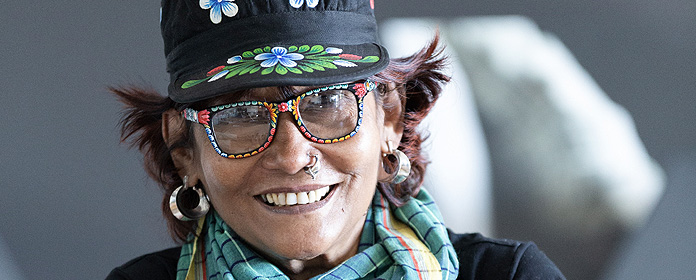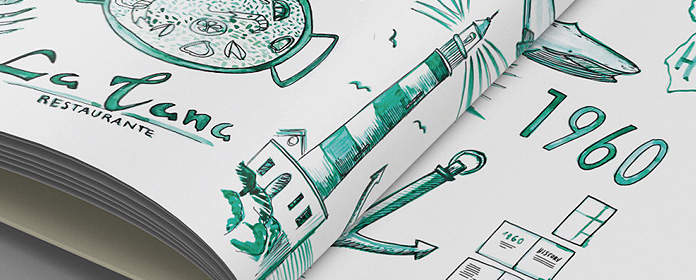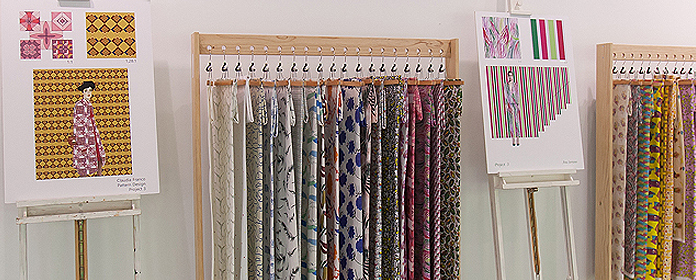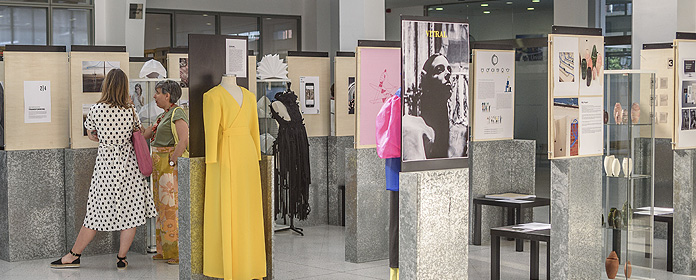"With my designs I am committed to create employment, empower women and contribute to the eradication of poverty in my country."
Bibi Rusell, a Bangladeshi designer, gave a lecture to the students of design

"With my designs I want to preserve the heritage of my country, encourage creativity, create employment, empower women and contribute to the eradication of poverty. This is my commitment," said Bengali designer and model Bibi Rusell at the University of Navarra. "When people see my collections, I want them to understand and appreciate all the work and the effort it has taken," she said.
The designer, who was invited to the academic center by ISEM Fashion Business School, gave a talk at lecture to the students of Degree of design and learned about the activities of Tantaka, the solidarity time bank of the University. School of Architecture and learned about the activities of Tantaka, the University's solidarity time bank.
After leaving the catwalks and working for renowned firms in the fashion world, he founded his own brand, "Bibi Productions". With this project has created and popularized the concept of "Fashion for the development", which has placed him as one of the leading and most influential agents for the development of his country, Bangladesh.
All products made by the Bengali designer are handmade. In her work she unites modern western culture with the culture and creativity of traditional Bangladeshi producers. She always uses materials from the country itself, with its processes of work, by and for that country. "The process is precious, it cannot be lost," he advocates. "It has to be passed on to young people," he adds, "because it is very rewarding for anyone to have a handmade garment or accessory.
Bibi Russell is spearheading the next revolution in the fashion world: the sustainability revolution: "Brands have to be responsible for the entire production process in the value chain, but their commitment goes beyond that: to contribute to the economic and social development of each country through fashion, especially in poor countries".
See the beauty of each country"I don't see poverty in Bangladesh, even though it is one of the poorest countries in the world; I see the beauty of my country," she said. And she does the same, she says, when she works in Colombia, Brazil, Mexico: "First I spend time with them, I know their culture, their way of working, their way of living and I don't feel like a foreigner, I feel like I belong to the country I'm in. Now I feel Spanish. But it's not about asking questions, it's about observing. I open my eyes and I learn. The core topic is to simplify the design; tell me how you do it and I will tell you how to make it simple".
Among the more than thirty awards she has received throughout her professional career, she was named "Woman of the Year" by Elle magazine in 1997 and "Woman Entrepreneur of the Year" by the Foundation for Women Entrepreneurs in 1999. In addition, that same year she was recognized by UNESCO as "Designer for Development" and two years later, as Artist for Peace (2001). "You have to believe it. We can do the same as men, if we are given the same conditions," she said to the female students.
In her more than twenty years of career Bibi Russell has worked as model for magazines such as Vogue, Marie Claire, Harper's Bazaar or Cosmopolitan, and has worked with major international brands such as Yves Saint Laurent, Kenzo, Karl Lagerfeld or Armani. After studying at the London College of Fashion during the 70's, she returned to her country in 1995 where she founded "Bibi Productions".



